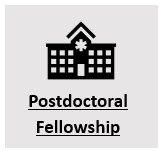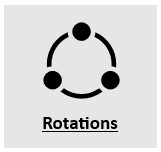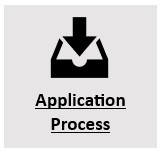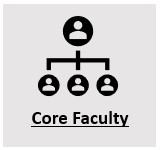Forensic Evaluations
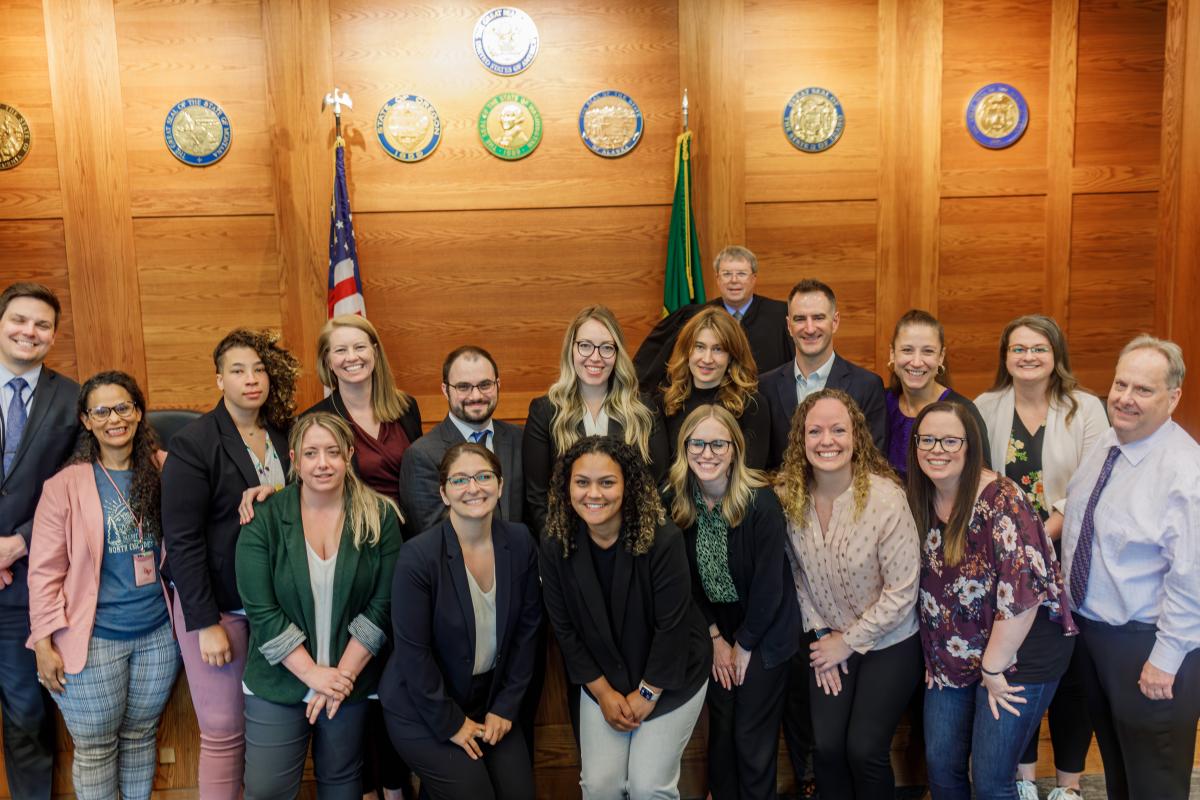 A majority of the fellows’ training will come from the hands-on experience of conducting forensic mental health evaluations with defendants and patients under the expertise of a clinical supervisor. Training experiences will progress in a graduated fashion depending on each fellow’s knowledge of and expertise in forensic psychology.
A majority of the fellows’ training will come from the hands-on experience of conducting forensic mental health evaluations with defendants and patients under the expertise of a clinical supervisor. Training experiences will progress in a graduated fashion depending on each fellow’s knowledge of and expertise in forensic psychology.
During the training year, the fellow will conduct a number of evaluations on each rotation (please see Rotations for additional information on rotation options). All evaluations include a review of available records, an interview with the defendant or patient, and a written report. Collateral interviews and psychological testing will be conducted as needed, on a case-by-case basis. Fellows can expect to gain experience with the administration, scoring, and interpretation of a variety of psychological assessment instruments, especially instruments geared toward forensic practice.
Supervision will be provided by licensed psychologists, focusing on the practical application of best practices in forensic evaluation. The fellows will integrate behavioral observations, clinical interview results, collateral information, and test interpretations into clear and concise written reports to the court.
There is a strong focus during the fellowship year on acquiring the necessary skills to communicate professionally and effectively with the court. While many of our fellows arrive with well-developed clinical writing skills, a significant amount of time in supervision is focused on the process of forensic report writing and verbal communication skills.
Expert Testimony
The issue of competent expert testimony is viewed as a primary training subject for this fellowship. Preparation for testimony starts with strong report writing and initial instruction from formal didactic training offered by staff. As available, opportunities are provided for the observation of testimony of licensed psychologists on various psycho-legal issues.
Of particular pride to our training program is a formal mock trial experience, which is conducted with postdoctoral fellows and doctoral interns to refine their testimony skills and receive feedback from experts in the legal community.
Each spring/summer, the mock trial is hosted at the Spokane County Courthouse in Spokane, Washington. Defense and prosecuting attorneys practice direct- and cross-examination of our trainees in front of a superior court judge. The trainees receive feedback from the attorneys and the judge about their testimony. Other opportunities will be provided as they become available.
Didactic Training
Didactics will be provided to the fellows throughout the training year. Fellows will attend regularly scheduled, in-house didactic presentations addressing basic and advanced forensic topics and professional ethics. Didactic training is presented by forensic staff as well as professionals in the community and from other forensic facilities. The fellows are expected to complete all readings and attend all presentations.
- Forensic Postdoctoral Seminar Series: The forensic didactic seminars address a wide range of basic and advanced topics related to forensic practice, forensic research, and professional ethics. Didactic seminars are typically held on Friday afternoons, September through June.
- Forensic Case Conference: Fellows will gain exposure to a variety of complex and interesting forensic cases, and importance is placed on professional consultation to discuss difficult forensic issues. Case conferences are available for both trainees and current evaluators to present and discuss any difficult case issues, the associated case law, forensic nuances, and diagnostic anomalies. There are also opportunities to present complex cases for consultation in a grand rounds style case conference.
- Case Law Seminar Series: Since mental health case law is the foundation of forensic practice, the forensic fellows will receive extensive training in foundational case law through a study of landmark cases in a biweekly case law series. This seminar additionally assists in preparation for forensic board certification. Along with other forensic staff members, the fellow will write legal briefs as assigned and take an active role in discussing the various cases.
- Intern Seminar Series (optional): Intern seminars include presentations provided by staff and community members regarding clinical and forensic practice, with a greater emphasis on a broad range of clinical subjects. Fellows may have the opportunity to present on a topic in line with their experience and expertise (e.g., dissertation, research, previous specialty area).
Supervision
In addition to regular supervision with their primary supervisor(s), fellows also receive group supervision on Fridays. Currently, with cohorts on both sides of the state, group supervision varies weekly and includes group supervision with all fellows, group supervision with East and West side cohorts separately, and check-ins with the training director and ombudsperson.
Additional Activities
Fellows participate in additional activities, sometimes referred to as secondary rotation duties, including supervision of doctoral interns (for example, group supervision, supervising the completion of psychological testing measures), conducting and writing up psychological testing measures, supervision of practicum students (for example, individual supervision, teaching psychological testing measures), participation in a research project, and management of the forensic postdoctoral seminar series.

